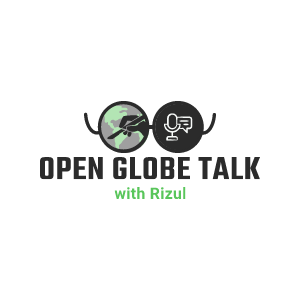Key Insights from: National Eye Institute at Risk – Key Takeaways for Vision Scientists
Editor:
Zoha Mian
Zoha is a fourth-year medical student at the University of Louisville. She is also the current policy and advocacy director for OGT.
Vision science leaders recently convened to discuss proposed NIH restructuring, which could merge the National Eye Institute (NEI) with other institutes, potentially jeopardizing eye-specific research. Experts voiced concerns that such a move could deprioritize critical areas like macular degeneration and glaucoma, undermining advancements in eye health. The call to action emphasized the importance of preserving NEI's independence to continue progress in vision science and its broader health implications.
BACKGROUND
Vision science experts gathered in a pivotal discussion hosted by the Association for Research in Vision and Ophthalmology's (ARVO), which discussed National Institute of Health (NIH) restructuring proposals, which could significantly impact vision research. Dan Ignaszewski, Executive Director of NAEVR/AEVR, shared insights on a House report published on June 14, 2024, by Republican Representative McMorris Rodgers. This report recommends restructuring the NIH by consolidating its 27 institutes and centers down to 15.
WHAT WOULD THIS ENTAIL?
Such a restructuring would involve merging the National Eye Institute (NEI) with the National Institute of Neurological Disorders and Stroke (NINDS) and the National Institute of Dental and Craniofacial Research (NIDCR), effectively reducing NEI's independence and potentially deprioritizing eye-specific research. The proposal made it through the Labor, Health and Human Services (LHHS) subcommittee and full committee based on party-line votes, though it has not yet been accepted by the full House. According to Ignaszewski, this consolidation risks neglecting eye-specific studies unrelated to neurological studies, such as anterior segment research. Additionally, priorities and funding for eye health research could shift from year to year.
JUSTIFICATION FOR NEI TO BE AN INDEPENDENT ENTITY
Vision health leaders, including Stacy Haller, President and CEO of BrightFocus Foundation, stressed that NEI’s independence is essential for tackling high rates of vision-impairing diseases like macular degeneration and glaucoma, which have impacts on systemic health. The NEI, as a dedicated entity, has been crucial in focusing resources on unique aspects of eye health that might be overshadowed if combined into broader neuroscience or dental research priorities.
Dr. Preeti Subramanian, PhD, Director of Vision Science Programs at BrightFocus Foundation, highlighted NEI's transformative advancements in eye health. These include FDA-approved gene therapy for inherited eye diseases, OCT imaging for detailed retinal views, and AI systems improving diagnostic accuracy, such as the first autonomous diabetic retinopathy detection tool. NEI has also led in using big data for healthcare research, with eye health insights shedding light on conditions like diabetes, cardiovascular disease, and Alzheimer's.
CALL TO ACTION
NEI must remain independent to continue its vital work in advancing eye health for all. Vision researchers, patients, and advocates can make a difference by engaging policymakers to protect NEI’s autonomy.
HERE’S HOW YOU CAN HELP:
Advocate for NEI: Reach out to Congress using platforms like NAEVR's Voter Voice to support NEI’s independence.
Tell Your Story: Communicate the value of your research—why it matters, who it helps, and the broader impact on systemic health.
Engage and Educate: Keep the NEI’s importance at the forefront by sharing the societal benefits of vision research in areas like gene therapy, artificial intelligence, and big data, as emphasized by experts like Dr. Subramanian. Eye health connects to overall health, and NEI’s role is irreplaceable.
CONCLUSION
By sharing research stories and advocating for dedicated funding, we can ensure that vision research remains a priority and that NEI continues leading advancements in eye health.
REFERENCES
The Association for Research in Vision and Ophthalmology-. Arvo.org. Published 2024. Accessed November 13, 2024. https://www.arvo.org/advocacy/events/webinar-national-eye-institute-at-risk-key-insights-for-vision-scientists/


